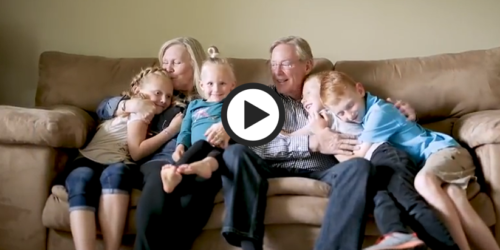Inside the Guide: Interviewing Relatives
As part of a recent research project, I was asked to conduct an interview with my oldest living relative. Being the shy and quiet person that I am, I felt a little uncomfortable with this task because I didn’t really want to interrogate my grandma. However, once I was with her and asking her questions, I recognized the long-term value that this interview could have for generations to come. I learned more about my grandma in that interview than I had known about her my entire life.
quiet person that I am, I felt a little uncomfortable with this task because I didn’t really want to interrogate my grandma. However, once I was with her and asking her questions, I recognized the long-term value that this interview could have for generations to come. I learned more about my grandma in that interview than I had known about her my entire life.
I’m not an expert in conducting interviews, but here are a couple of things I learned during the interview I held that may be helpful to consider as you prepare to interview your relatives.
- Pick a topic. Although not always necessary, I found it useful to have a particular topic in mind for the interview, so I could make sure to stay focused and keep a narrow scope. The topic I chose to center my questions around was dating and marriage. Other topics could include childhood, adolescents, schooling, a conversion story, family traditions, etc.
- Have questions prepared. Whether you choose to pick a specific topic or not, it is very important to have a list of questions prepared. If you aren’t sure what questions to ask, The Family History Guide has links to some great interview resources and effective questions. (See the end of the article for more information.)
- Record the interview. This may be obvious, but it is very important to make sure that you bring a phone or other recording device to ensure that the the interview is properly documented. Taking notes during the interview is good too, but it won’t replace the need for a recording.
- Be flexible. While it is important to have a general plan and to have questions prepared, don’t be afraid to go a little off topic at times when your relative wants to tell an important story.
- Avoid asking yes or no questions. Make sure you ask questions that open up room for discussion or additional stories. Although some relatives may expound on yes or no questions, it is generally a good idea to stay away from those questions, as the results may be shallow.
- Ask follow up questions. If your relative tells a story, don’t just go on to the next question on your list: ask more about the experience they told. This helps the person recognize that you’re really listening and you’re interested in what is being said, instead of just following a scripted list.
- Be respectful. If your ancestor would like to tell you something but does not want it to be recorded, respect the request. Understand that some questions may be uncomfortable to answer or bring back memories they the person would rather not share. Be respectful, and do not press if an answer is not forthcoming.
- Have fun. An interview with a relative doesn’t have to be serious the whole time; it can be fun! Some of the stories your relatives will tell will be funny, so don’t be afraid to laugh with your relative during the interview.
- Express gratitude. Sincerely thank your relative for taking time out of the day to talk with you about his or her life. This is not always easy for everyone to do, so make sure the person knows that you appreciate the willingness to share with you.
- Transcribe the interview. After the interview, listen to the recording and transcribe the interview. The transcription can be helpful to those who may have hard time hearing or understanding what is being said in the interview recording. It can also be a good backup, in case something were to happen to the interview recording.
Interviewing your relatives can be a very rewarding experience that can help you connect with them in the present and  preserve their legacy for generations to come.
preserve their legacy for generations to come.
For additional information, check out the following links:
- FamilySearch: Project 2, Goal 3 in The Family History Guide: Interviewing living relatives about their memories and life stories
- Recording Family History Stories – tips from the Family History Guide
- Using FamilySearch Apps to Record Oral Histories
- Capturing Memories from the Older Generation





